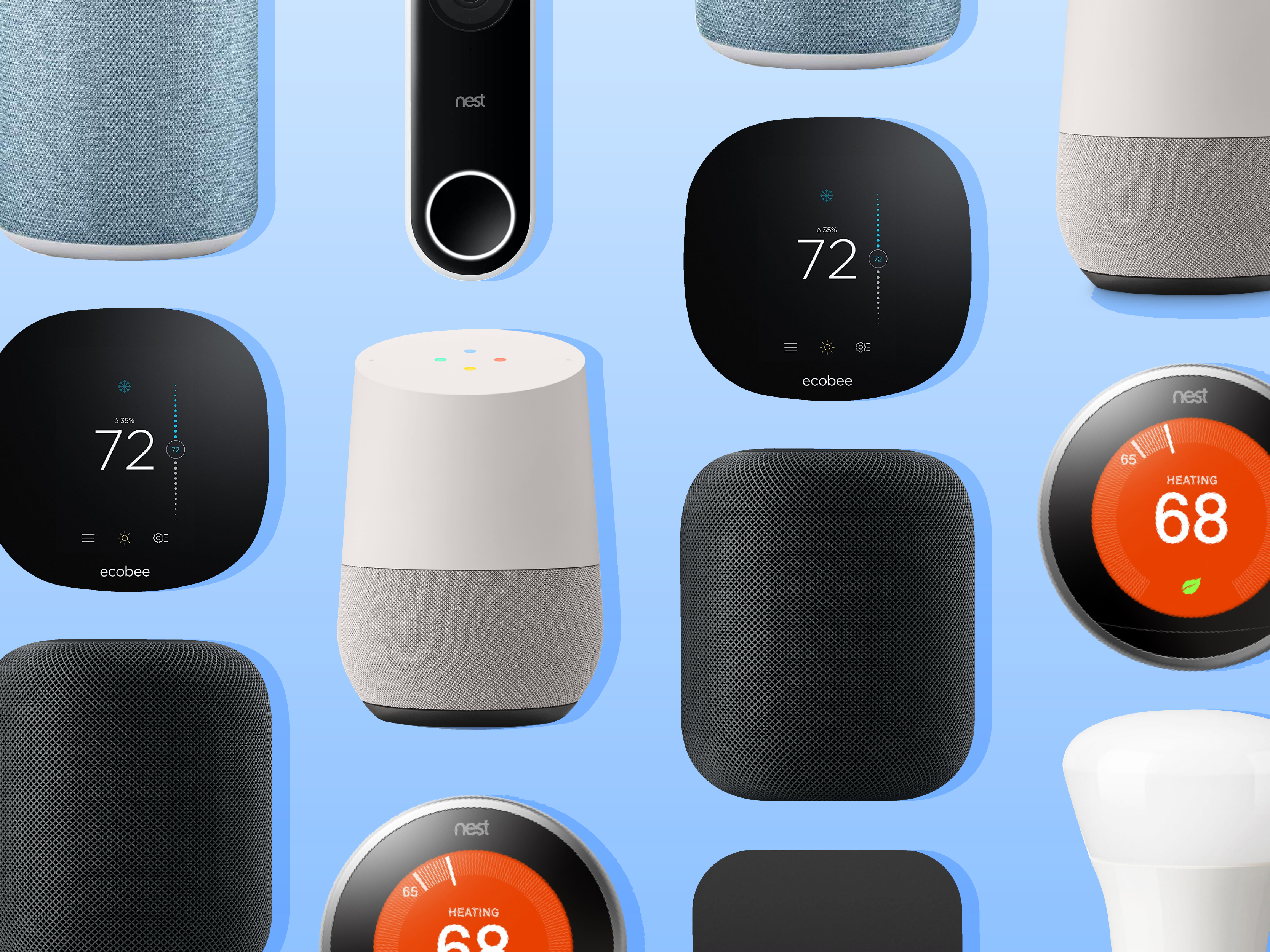- Owning a smart home is more accessible than ever, thanks to the multitude of available connected devices and systems.
- There are three main smart device platforms to choose from: Google Assistant, Amazon Alexa, and Apple HomeKit.
- Amazon Alexa offers the most comprehensive assortment of compatible devices, while Google offers the smartest digital assistant, and Apple HomeKit includes the most advanced automation features.
- Ultimately, however, the ecosystem that’s right for you will largely depend on what devices you already own.
The smart home is getting increasingly popular. These days it’s easy to buy a smart version of nearly any tech product or appliance you can imagine, from thermostats and light bulbs to security cameras and sensors. With smart connectivity, you can control all of these varied devices from a mobile app or even through voice commands.
Of course, it’s usually not as easy as simply buying a device and using it. If you’re trying to set up a full smart home, then you probably want to work within an ecosystem so that all your devices communicate well together. There are three main ecosystems to consider – Apple HomeKit, Google Assistant, and Amazon Alexa.
But which one is the best? If you’re setting up a new smart home, which ecosystem should you work with? Here’s everything to keep in mind.
Apple HomeKit vs Google Assistant vs Amazon Alexa: which is better?
For the most part, Amazon Alexa, Apple HomeKit, and Google Assistant all offer a lot of the same fundamental smart home features and functions. If you have a hub device and multiple smart products with support for the desired platform, then you will be able to access basic controls for all of your connected gear via an app or through voice commands.
Amazon Alexa has a slight edge when it comes to the total number of compatible products out there to choose from. Alexa is a very reliable digital assistant as well. Google's platform, meanwhile, also has a large number of devices to pick from, and the Google Assistant's intelligence is known for being a bit more advanced than the competition. Apple HomeKit, on the other hand, has an advantage when it comes to automation options, but there aren't quite as many HomeKit-enabled devices on the market just yet, and Apple only offers one Siri voice-enabled speaker model.
The apps each system uses, device compatibility, digital assistant intelligence, and automation capabilities all differ to some degree - but the core idea remains the same between all three ecosystems. This means that choosing the best option for your needs will likely rely heavily on factoring in what devices you already own.
Compatible devices
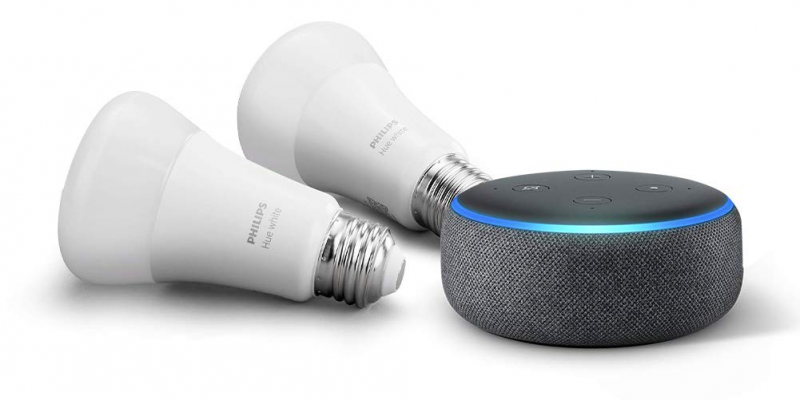
Device compatibility is perhaps the most important thing to consider when deciding between Google Assistant, Amazon Alexa, or HomeKit for building a new smart home. After all, getting multiple products to work well together can make it much easier to automate your home.
While Amazon Alexa really led the charge with building a smart home ecosystem full of products to choose from, Google Assistant has caught up over the past few years. There are still some devices that work with Alexa and not Google, but the vast majority of products you're likely to use will work with both - and if one doesn't, there should be a good alternative available.
HomeKit is a bit of a different story. Historically, Apple has had tight control over which devices it certifies to work with HomeKit. That's not necessarily a bad thing - it's largely in an effort to keep devices more secure and make sure that they work well. The downside, of course, is that there are far fewer devices available for HomeKit. That said, in the past year, Apple has relinquished some of its control and we'll likely see many more HomeKit devices on the market in the near future.
Ultimately, Alexa is still the king when it comes to smart home compatibility, however Google is in a close second - and you'll still find a good assortment of devices for Apple's HomeKit.
Recommended devices
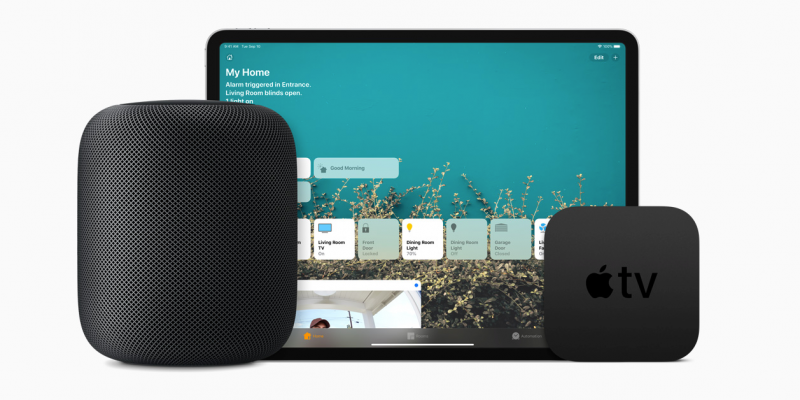
Interested in specific devices compatible with Amazon Alexa, Apple HomeKit, or Google Assistant? Here are some products we recommend for setting up a basic smart home under each ecosystem. We've also recommended a hub device for each platform, typically a smart speaker, that can be used to control all of the other connected products in your house through voice commands.
Apple HomeKit:
There may be fewer HomeKit devices available than Google Assistant or Alexa, but all of the major product categories are still covered. Here are some of the best of devices you can buy to set up a HomeKit smart home.
- Hub: Apple TV 4K or HomePod
- Lights: Philips Hue
- Security camera: Logitech Circle 2 Wired
- Smart plug: Belkin WeMo Mini
- Thermostat: Ecobee SmartThermostat
- Motion sensor: Eve Motion Smart Sensor
- Window/door sensor: Eve Door & Window Sensor
- Streaming device: Apple TV 4K
- TV: LG 65-inch C9 4K TV
Google Assistant:
Google Assistant has plenty of supported devices available for it, including products that are sold under Google's Nest branding. Here are some suggestions for Google Assistant-enabled products you can use to configure a basic smart home.
- Hub: Google Home
- Lights: Philips Hue
- Security camera: Nest Cam IQ
- Smart plug: Belkin WeMo Mini
- Thermostat: Nest Learning Thermostat
- Window/door sensor: Nest Detect (requires Nest Secure)
- Streaming device: NVIDIA Shield TV or Google Chromecast Ultra (depending on budget)
- TV: Sony 55-inch X950G 4K TV
Amazon Alexa:
There are many devices compatible with Alexa too, including a lot of first-party hardware that Amazon develops itself. Amazon is also known for releasing new smart devices on a more regular basis than its competitors. Here are our picks for the best Alexa-compatible devices.
- Hub: Amazon Echo Plus
- Lights: Philips Hue
- Security camera: Arlo Pro 2
- Smart plug: Belkin WeMo Mini
- Thermostat: Ecobee SmartThermostat
- Window/door sensor: Samsung SmartThings Multipurpose Sensor
- Streaming device: Amazon Fire TV Stick 4K
- TV: LG 65-inch C9 4K TV
Smart assistants
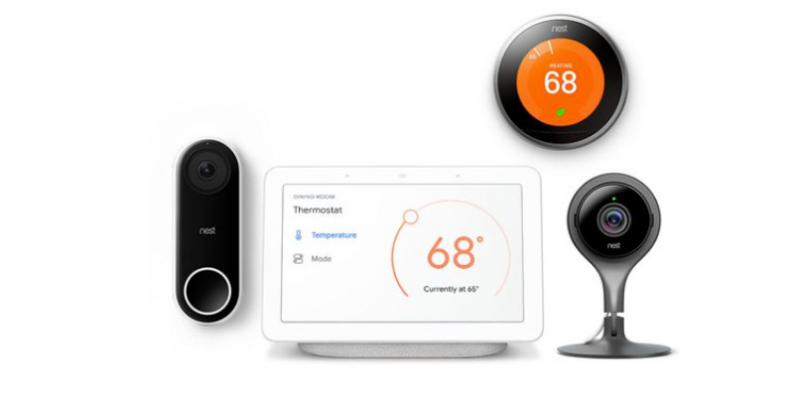
While Google may be trailing Alexa a little when it comes to smart device compatibility, the opposite is true when it comes to features offered by their respective digital assistants. When it comes to the smart home, digital assistants are used to control devices with your voice - but they can also be used to find out information from the web, play music, and more.
Generally speaking, Google Assistant is considered to be the best digital assistant out there. There are plenty of reasons for this. For starters, it's excellent at understanding what people are saying, and misunderstands a small fraction of the time. It also offers more features than the other two, and sounds more natural in the process.
That said, Alexa is still very capable. Alexa is getting better and better at understanding what people say, and Amazon gives it extra features regularly. Alexa "skills" are third party features that can be added to Alexa to make it more powerful, and while these skills can sometimes be a bit hit or miss, they're worth looking at.
Unfortunately, once again, Apple is trailing a little. Siri may be getting better, but it's doing so slowly - and as a result, Siri is far less capable than Google Assistant and Amazon Alexa. Hopefully, Apple will change this soon with a major update to Siri, but until then it's the most frustrating of the three to use. If you're an iPhone user and used to how Siri works, then this may not be such a huge deal for you - but it's still worth keeping in mind.
Voice control devices
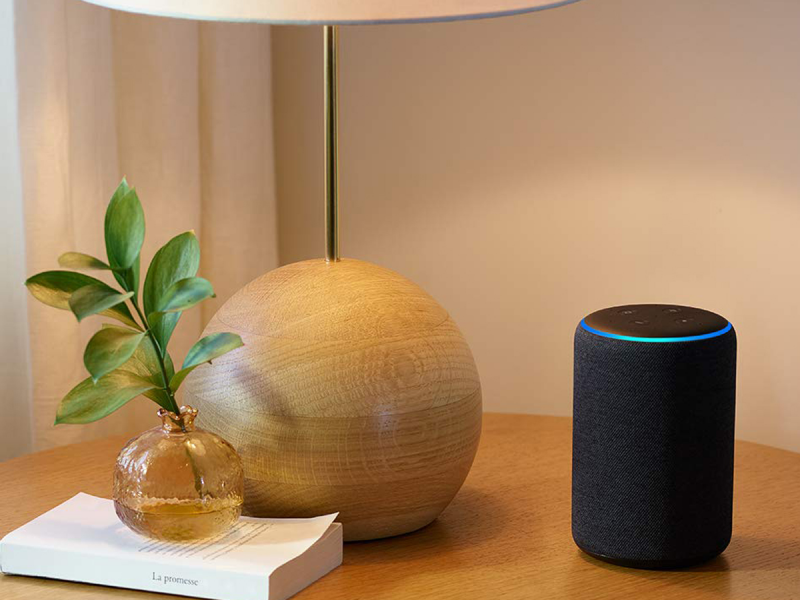
When it comes to building a smart home ecosystem, it's not just about what devices you can control - it's also about how you control them. Usually, this is through a mobile app, but you can also use compatible smart speakers, like the Amazon Echo and the Google Home. These days, certain platforms can even be controlled via smart displays, which show information on the screen when appropriate.
Google and Amazon are pretty close when it comes to smart speakers and displays, though Amazon may have the slight edge here when it comes to the total number of products it offers and the frequency that it releases new models. That said, both companies offer a range of smart speakers across different budget levels, as well as a number of smart displays for when you want a more visual look at information. The entry-level Amazon Echo Dot and Google Nest Mini both start at $50 - but are both often available at half price during sales. Prices range up from there for more high-end devices.
Poor old Apple lags behind here too. Apple only has one smart speaker - the HomePod - and it's relatively expensive at $299. We hope Apple expands its smart speaker lineup, but until then you're stuck with the HomePod. Of course, there are plenty of other places to use Siri - like an iPhone, iPad, Apple Watch, Mac, and Apple TV - and Siri can control smart home devices on all of those devices.
Extra features
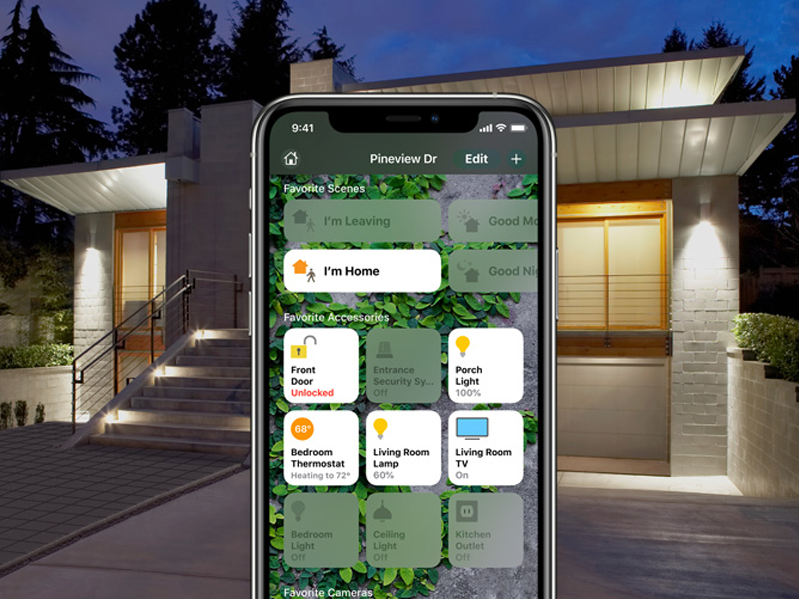
There are other things worth considering when it comes to these smart platforms. For example, Google Assistant works with Chromecast and Android TV, while Alexa works with Amazon's Fire TV, and HomeKit works with Apple's AirPlay and Apple TV.
All three platforms offer their own visual interface too, and this could be where Apple wins. The Google Home app and Amazon Alexa app allow you to control devices with your phone, but the Apple Home app is a little better designed and easier to use - plus it allows for relatively powerful automation pretty easily. This is one area where HomeKit really wins - automation can be tied to the location of your phone, the activity of other devices and sensors, and so on.
It's important to note that in order to control HomeKit-connected devices when you're away from your home, you'll need to set up a hub - which can be an Apple TV, HomePod, or iPad. The hub is what will talk to all of your other smart home devices.
The bottom line
So which one is right for you? Well, there are some key benefits to each, but ultimately it probably comes down to what devices you already have.
If you're an Apple user with an iPhone, iPad, HomePod, Apple TV, or any other Apple smart products, then HomeKit is simply going to be the most convenient for you - even if Siri lags behind a little and there aren't as many compatible smart devices to choose from. HomeKit also offers the most comprehensive smart home automation options and the best app interface.
For people who already own and use a lot of Android products, however, Google Assistant is likely a better bet. There's a good assortment of compatible devices to choose from, and the Google Assistant itself is the smartest out of the three voice assistants.
Amazon Alexa, meanwhile, offers the most compatible smart products to choose from, including a multitude of first-party hardware options. Alexa is also a very capable digital assistant to work with, and more and more skills are being added on a regularly basis. If you're not already heavily invested in other Google or Apple devices, Alexa is probably the most well-rounded option to go with.

